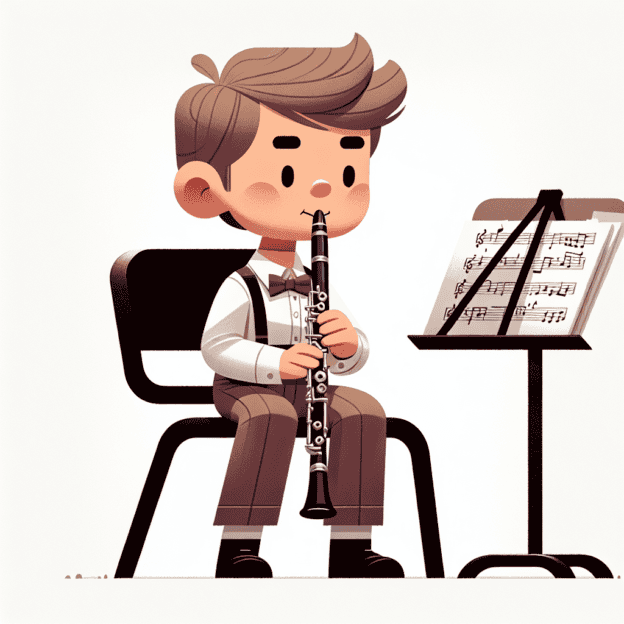Starting your clarinet journey is exciting, but it can also be a bit confusing. Picking the best clarinet for beginners is one of the most important decisions you'll make. Let me walk you through the process, helping you choose the right instrument, keep it in good shape, and begin your musical adventure with confidence.
Understanding Clarinet Basics
Before diving in, it's helpful to know the basics of the instrument. A clarinet consists of five main parts: the mouthpiece, barrel, upper joint, lower joint, and the bell. These pieces work together to create the beautiful, distinct sound we all enjoy. Some brands, like Martin Freres, are known for making high-quality clarinets that new players can trust.
Selecting Your First Clarinet
When you're ready to choose your first clarinet, keep these factors in mind:
- Budget: Find a balance between quality and cost. While the best clarinets can be expensive, there are many affordable options that play well for beginners.
- Material: Clarinets are usually made of plastic or wood. For new players, plastic clarinets might be better because they're tough and less expensive.
- Key System: Pick a clarinet with a Boehm key system. It's the most common and recommended for beginners.
| Feature | Beginner Clarinet | Intermediate/Professional Clarinet |
|---|---|---|
| Material | Usually plastic | Usually wood |
| Price Range | $200 – $1000 | $1000 – $5000+ |
| Durability | More resistant to changes in temperature and humidity | Requires more careful handling |
| Sound Quality | Good for learning | Richer, more complex |
Why Martin Freres Stands Out
Martin Freres clarinets are known for their solid construction, accurate tuning, and full tone, making them a great option for beginners. While we're not promoting any specific brand, knowing about reliable makers can help you make a smart choice.
Maintenance Tips
Taking good care of your clarinet is key to keeping it in great shape. Here's what you should do:
- Clean the instrument with a swab after each use to get rid of moisture.
- Put cork grease on the joints often.
- Be gentle with the reeds – switching between them will make them last longer.
- Check for loose screws now and then, and make sure the keys are lined up right.
Enhancing Your Playing Experience
Being comfortable is key when learning any instrument. Here are some tips to avoid discomfort and make your practice sessions better:
- Make sure you're sitting or standing with good posture.
- Use a neck strap to take some weight off your hands.
- Practice often, but don't have long, tiring sessions when you're just starting out.
Early Learning Techniques
To get off to a good start, focus on these basics:
- Breath Control: Practice controlling your breath with long notes. This helps you create a steady airflow, which is important for making a smooth sound.
- Finger Exercises: Regular finger exercises help you move more easily and quickly. Spending time on these early will really pay off later.
- Reading Music: Start learning to read sheet music. This basic skill will help you understand and play a wide range of music.
- Playing Simple Tunes: Start with easy songs to build your confidence, then slowly move on to harder pieces.
The Transition Process
You might eventually outgrow your beginner clarinet. Moving to a better model can be easy if you know what to look for. Once you're comfortable with your first clarinet, you'll have a better idea of what features you want in a higher-quality instrument. This is where brands like Martin Freres can be helpful, as they offer a range of different clarinets.
Important Resources
Using resources is really helpful. Look for tutorials, online forums, or local music groups where you can get advice and inspiration. The clarinet community is very active, and getting tips from experienced players can be really beneficial.
Joining a Group
Playing the clarinet is more fun when you can share your progress with others. Think about joining a beginner band or a clarinet group. It gives you a sense of community and keeps practice sessions interesting and enjoyable.
Starting with the right clarinet, taking good care of it, and fully involving yourself in learning and playing the instrument can make a big difference. Remember, the process of learning the clarinet is just as rewarding as the music you create with it!
Table of Contents
- Understanding Clarinet Basics
- Selecting Your First Clarinet
- Why Martin Freres Stands Out
- Maintenance Tips
- Enhancing Your Playing Experience
- Early Learning Techniques
- The Transition Process
- Important Resources
- Joining a Group







